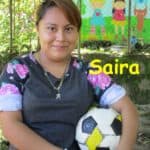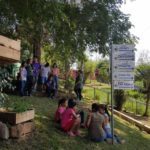A photo gallery of adjusting to life at COAR
To learn more about where these children are from, scroll down ⇓
Where are these new children from?
Since we have many new supporters from this summer’s mission appeals, (welcome!!), let me recap how children come to COAR: The government of El Salvador, through its agency, ISNA, controls all placement of children in foster care, whether a foster-family, guardian, or institution (like COAR.) They also periodically review whether children should remain in foster-care or be placed back with their families. This began in 2009.
There is a dramatic shortage of foster-families, so Archbishop Escobar-Alas of the Archdiocese of San Salvador decided that the Church should maintain foster-care facilities. He also committed to professional staff, best practices, and child protection policies. Many institutions across El Salvador could not maintain these standards and have closed. Some have simply run out of funding or staff. So the new children are from a variety of facilities that have closed. There are several family groups.
All have nowhere else to go. You all know that this world is full of children without options. Thank you for giving these children this home and this hope for their futures.
























